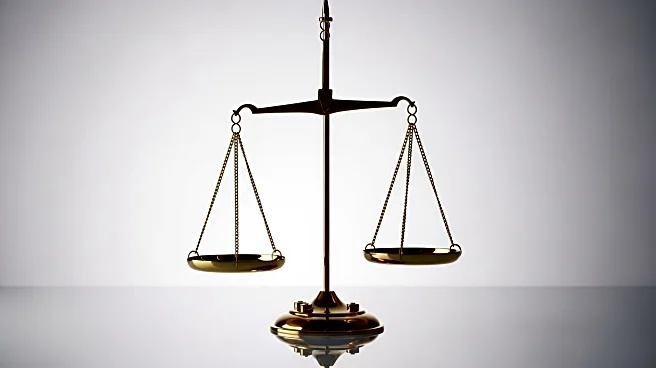What's Happening?
Information and Broadcasting Adviser Md Mahfuj Alam has called for the media in Bangladesh to engage in self-criticism regarding its role during the previous government's 15-year rule. He emphasized the need for accountability to the public to restore confidence in journalism. Alam highlighted that a letter was sent to the United Nations to investigate media irregularities during this period, but UNESCO showed interest in developing a code of conduct for journalists instead. He urged media owners and editors involved in past irregularities to apologize and take responsibility. The adviser also suggested research on the role of television channels during the July uprising, aiming for completion by December. He commended the Press Institute Bangladesh for its publications on the uprising, which serve as historical resources.
Why It's Important?
The call for media self-criticism is significant as it addresses the need for transparency and accountability in journalism, which are crucial for maintaining public trust. By acknowledging past mistakes, the media can work towards restoring its credibility and ensuring fair reporting. This move could lead to a more informed public and a healthier democratic process. The emphasis on developing a code of conduct for journalists suggests a push towards ethical journalism standards, which could improve media practices in Bangladesh. The research on television channels' roles during the uprising may provide insights into media influence on public perception and political events.
What's Next?
The Press Institute Bangladesh is expected to conduct research on the media's role during the July uprising, with results anticipated by December. This research could lead to recommendations for improving media practices and accountability. The development of a code of conduct for journalists, as suggested by UNESCO, may be pursued to establish ethical standards in journalism. Media outlets may face pressure to address past biases and irregularities, potentially leading to changes in editorial policies and practices. The approval of new private television channels could introduce diverse narratives and voices, impacting the media landscape in Bangladesh.
Beyond the Headlines
The emphasis on media accountability and self-criticism highlights broader issues of press freedom and the role of media in shaping public discourse. Ethical journalism is essential for a functioning democracy, and the call for self-reflection may encourage media outlets to prioritize unbiased reporting. The potential development of a code of conduct for journalists could set a precedent for other countries facing similar challenges in media integrity. The focus on new media channels suggests a shift towards more inclusive and diverse media representation, which could influence cultural and political narratives in Bangladesh.









